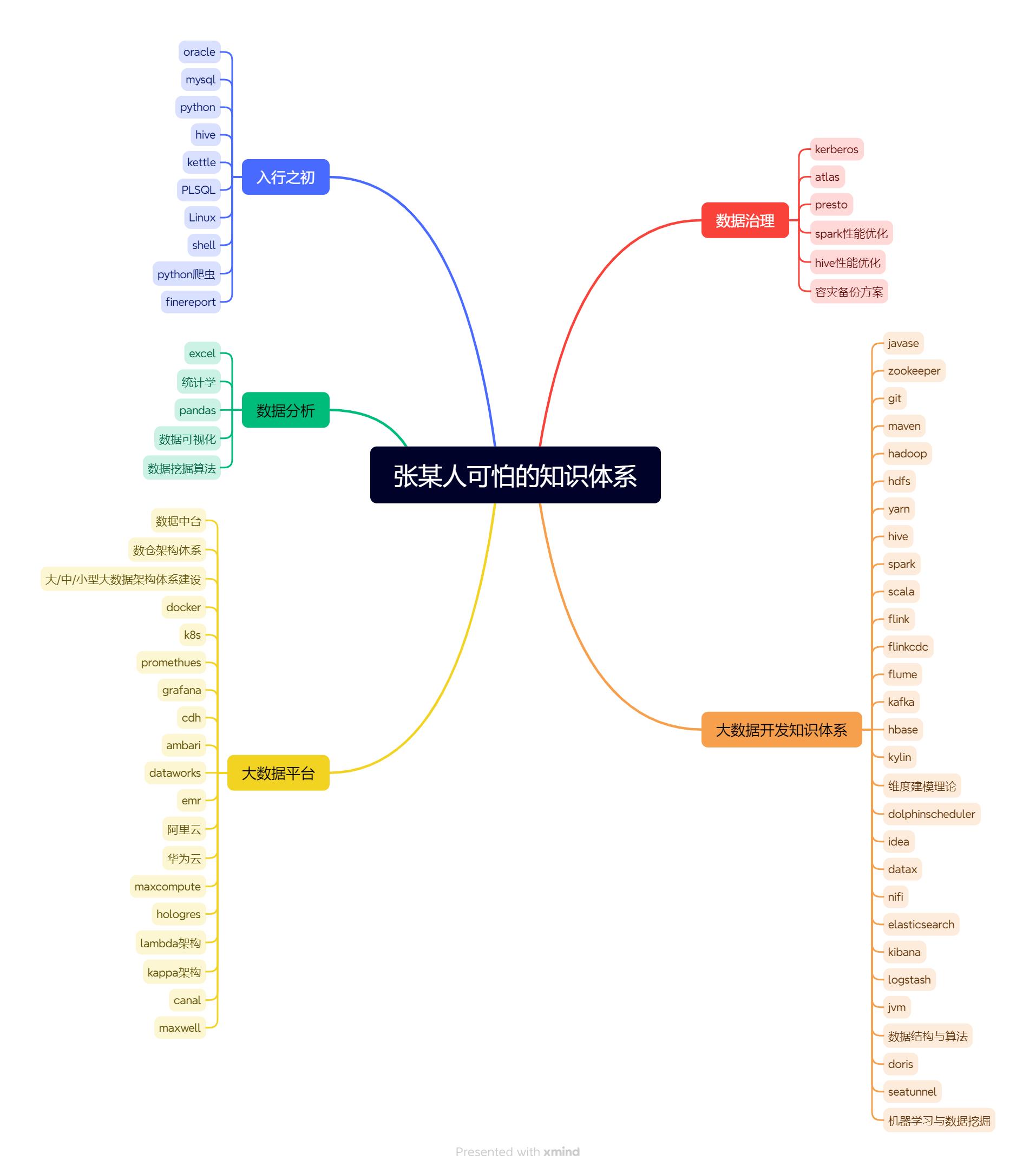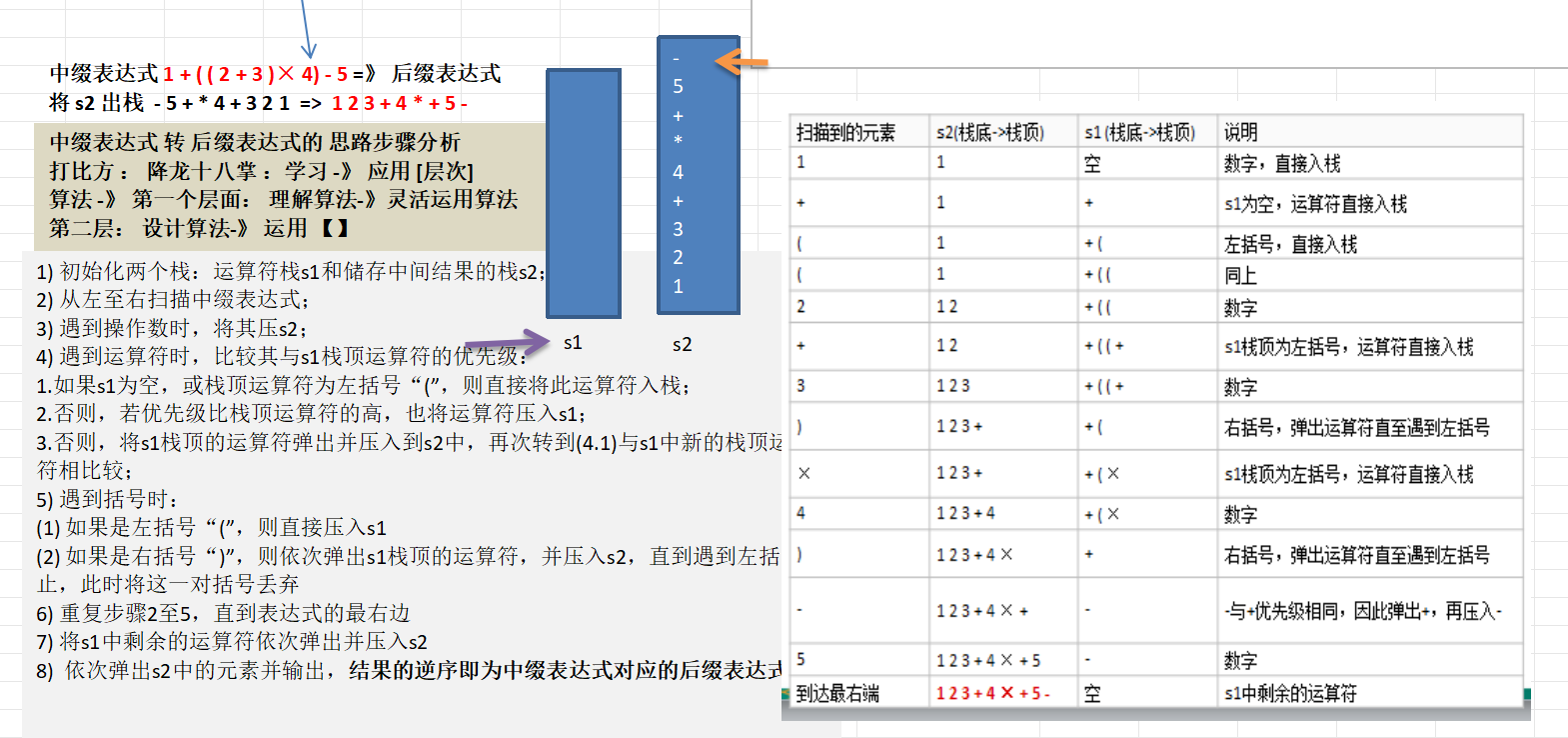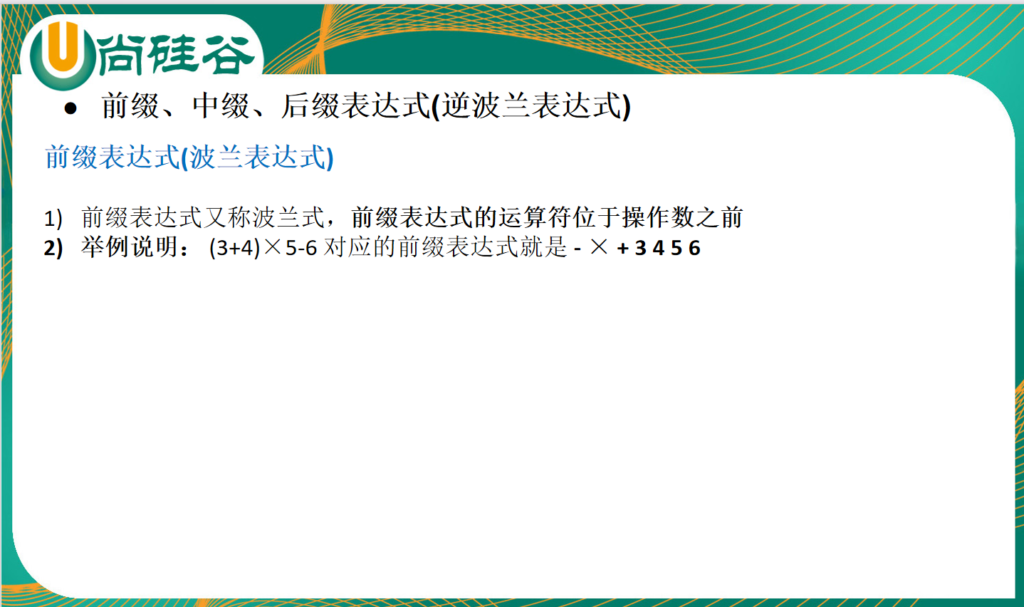
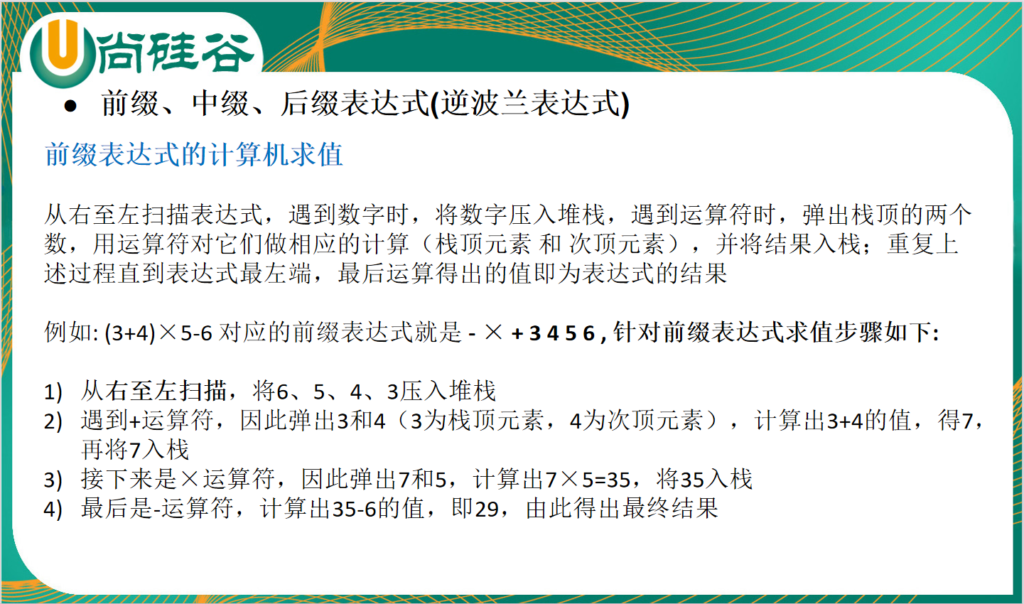
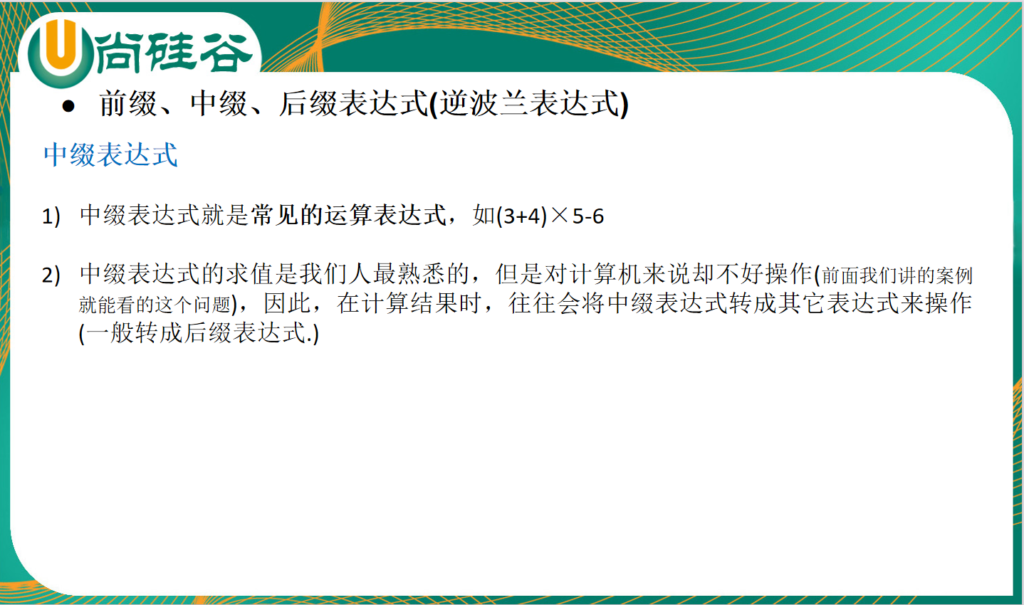
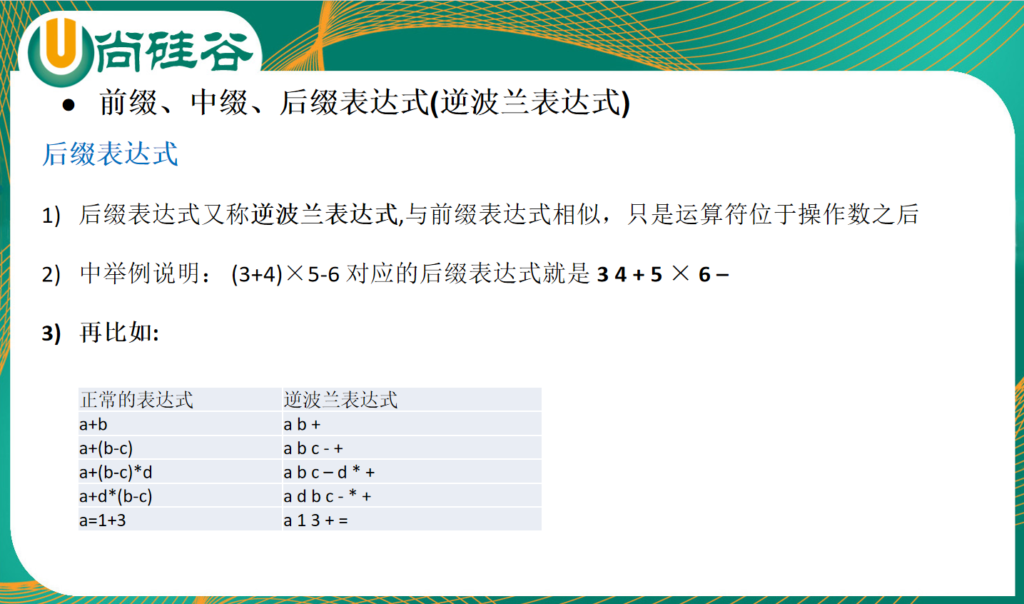
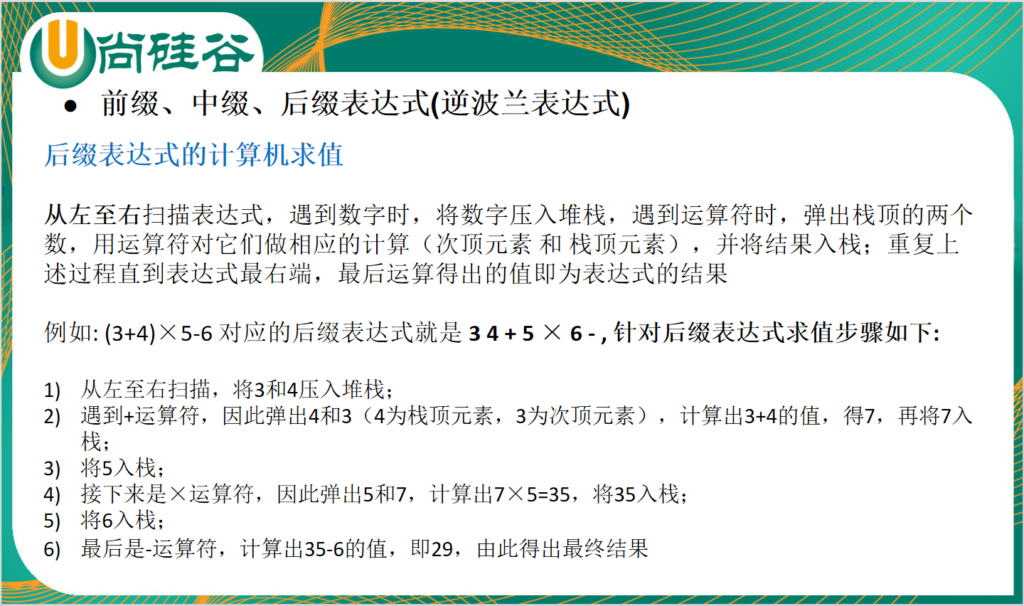
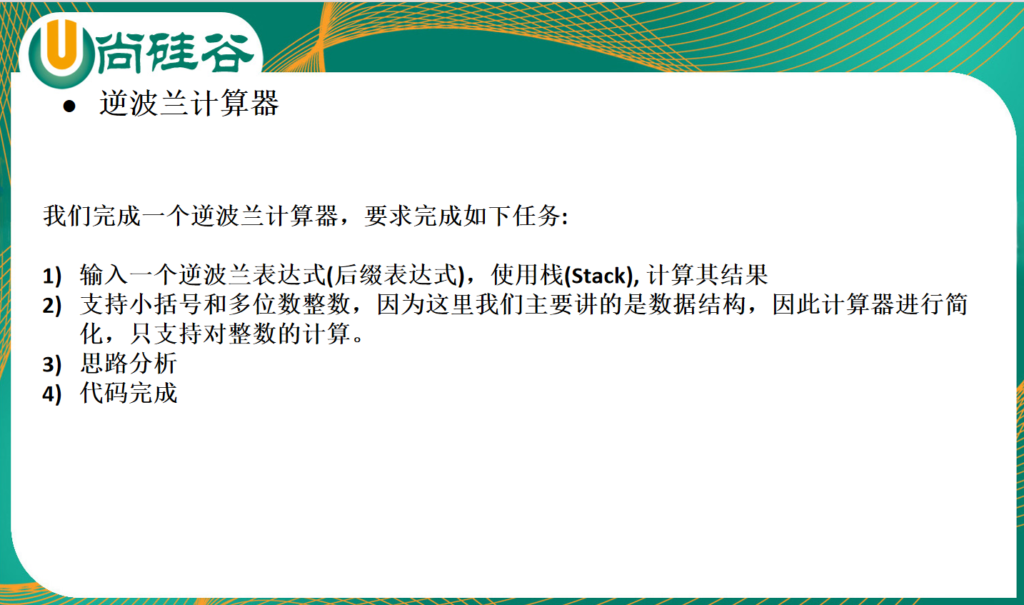
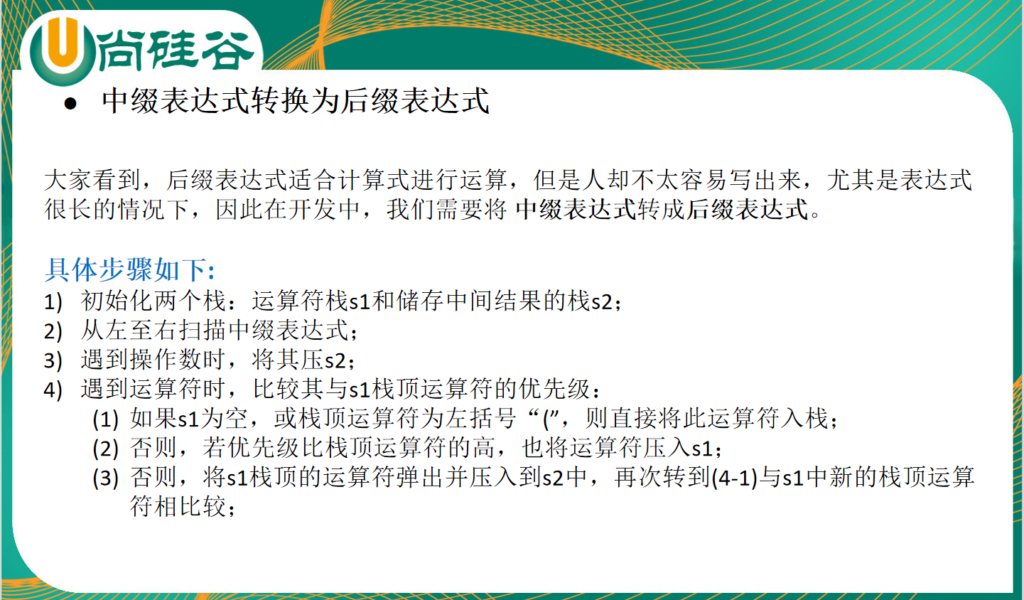
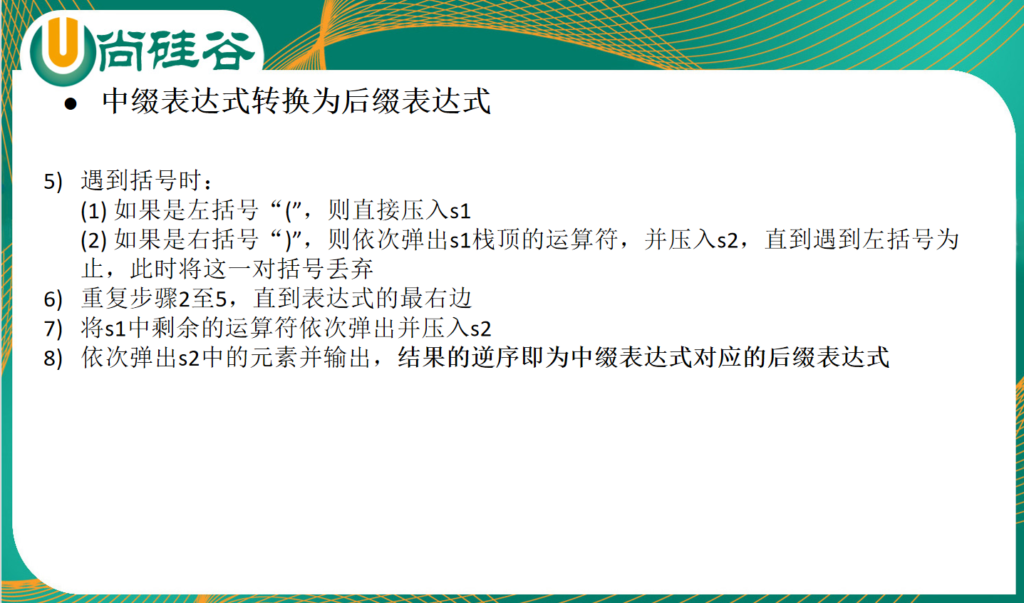
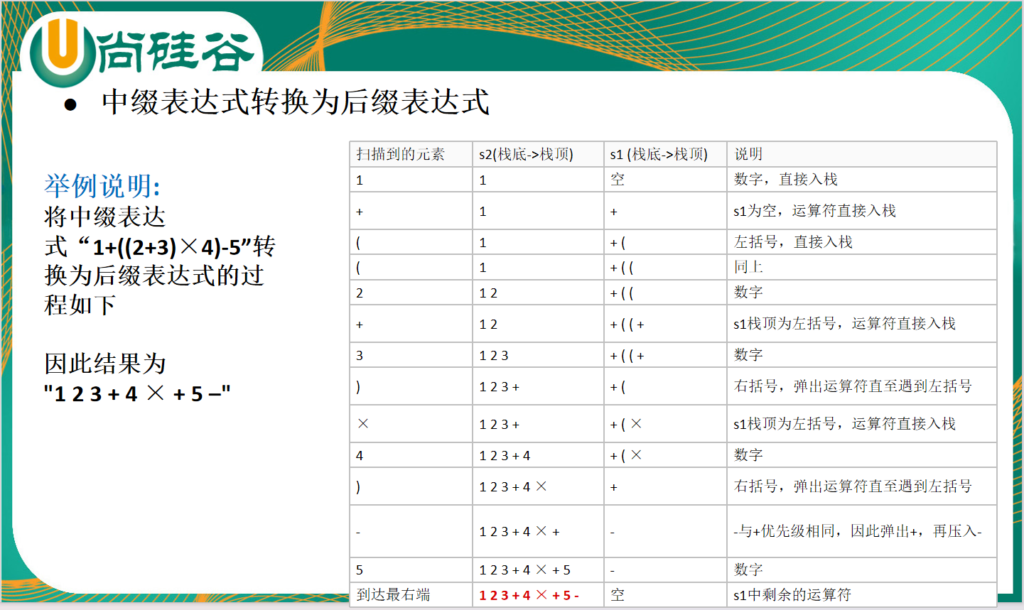
中缀表达式 转 后缀表达式 示意图
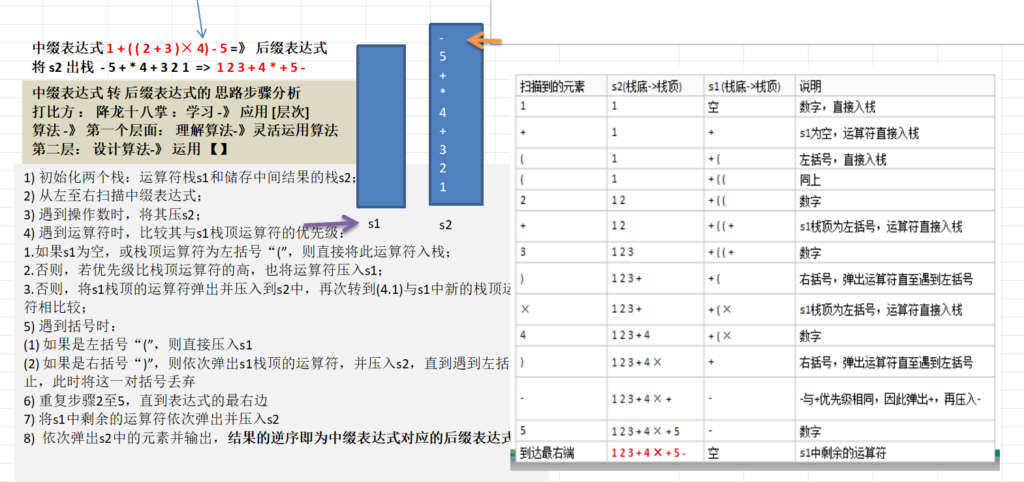
中缀表达式 转 后缀表达式 代码示例:
package com.zyy.stack;
import java.util.ArrayList;
import java.util.List;
import java.util.Stack;
public class PolandNotation {
public static void main(String[] args) {
// 完成将一个中缀表达式转成后缀表达式的功能
// 说明
// 1. 1+((2+3)x4)-5 => 转成 1 2 3 + 4 x + 5 -
// 2. 因为直接对str 进行操作,不方便,因此 先将 "1+((2+3)x4)-5" => 中缀的表达式对应的List
// 即 "1+((2+3)x4)-5" => ArrayList[1,+,(,(,2,+,3,),*,4,),-,5]
// 3. 将得到的中缀表达式对应的List => 后缀表达式对应的List
// 即 ArrayList [1,+,(,(,2,+,3,),*,4,),-,5] => ArrayList [1,2,3,+,4,*,+,5,-]
String expression = "1+((2+3)*4)-5"; // 注意表达式
List<String> infixExpressionList = toInfixExpressionList(expression);
System.out.println("中缀表达式对应的List=" + infixExpressionList); // ArrayList [1,+,(,(,2,+,3,),*,4,),-,5]
List<String> suffixExpressionList = parseSuffixExpressionList(infixExpressionList);
System.out.println("后缀表达式对应的List" + suffixExpressionList); // ArrayList [1,2,3,+,4,*,+,5,-]
System.out.printf("expression = %d",calculate(suffixExpressionList));
}
// 即 ArrayList [1,+,(,(,2,+,3,),*,4,),-,5] => ArrayList [1,2,3,+,4,*,+,5,-]
// 方法: 将得到的中缀表达式对应的List => 后缀表达式对应的List
public static List<String> parseSuffixExpressionList(List<String> ls){
// 定义两个栈
Stack<String> s1 = new Stack<String>(); // 符号栈
// 说明: 因为s2 这个栈,在整个转换过程中,没有pop操作,而且后面我们还需要逆序输出
// 因此比较麻烦, 这里我们就不用 Stack<String> 直接使用 List<String> s2
// Stack<String> s2 = new Stack<String>(); // 存储中间结果的栈s2
List<String> s2 = new ArrayList<String>(); // 存储中间结果的Lists2
// 遍历ls
for(String item : ls){
// 如果是一个数, 加入s2
// match("\\d+") 这就匹配一个数字吗?
if(item.matches("\\d+")){
s2.add(item);
}else if(item.equals("(")){
s1.push(item);
}else if(item.equals(")")){
// 如果右括号 ")" ,则依次弹出s1栈顶的运算符,并压入s2,直到遇到左括号为止,此时将这一对括号丢弃
while(!s1.peek().equals("(")){
s2.add(s1.pop());
}
s1.pop(); // !!! 将 ( 弹出 s1栈,消除小括号
} else {
// 当item的优先级小于等于s1栈顶运算符,将s1栈顶的运算符弹出并加入到s2中,再次转到(4,1) 与 s1 中新的栈顶运算符相比较
// 问题 : 我们缺少一个比较优先级高低的方法
while (s1.size() != 0 && Operation.getValue(s1.peek()) >= Operation.getValue(item)){
s2.add(s1.pop());
}
// 还需要将item压入栈
s1.push(item);
}
}
// 将s1中剩余的运算符依次弹出并加入s2
while(s1.size() != 0){
s2.add(s1.pop());
}
return s2; // 注意因为是存放到List,因此按顺序输出就是对应的后缀表达式对应的List
}
// 方法: 将 中缀表达式转成对应的List
// s = "1+((2+3)x4)-5";
public static List<String> toInfixExpressionList(String s){
// 定义一个List,存放中缀表达式 对应的内容
List<String> ls = new ArrayList<String>();
int i = 0 ; // 这时是一个指针,用于遍历 中缀表达式字符串
String str; // 对多位数的拼接
char c; // 每遍历到一个字符,就放入到c
do {
// 如果c是一个非数字,我需要加入到ls
if((c=s.charAt(i)) < 48 || (c = s.charAt(i)) > 57){
ls.add("" + c);
i++; // i 需要后移
} else { //如果是一个数,需要考虑多位数
str = ""; // 先将str 置成"" '0'[48] -> '9'[57]
while (i < s.length() && (c = s.charAt(i)) >= 48 && (c = s.charAt(i)) < 57){
str += c; // 拼接
i++;
}
ls.add(str);
}
} while (i < s.length());
return ls; // 返回
}
// 将一个逆波兰表达式,依次将数据和运算符 放入到 ArrayList 中
public static List<String> getListString(String suffixExpression){
// 将 suffixExpression 分割
String[] split = suffixExpression.split(" ");
List<String> list = new ArrayList<String>();
for (String ele : split){
list.add(ele);
}
return list;
}
// 完成对逆波兰表达式的运算
/*
* 1) 从左至右扫描,将3和4压入堆栈
* 2) 遇到+运算符,因此弹出4和3 (4为栈顶元素,3为次顶元素),计算出3+4的值,得7,再将7入栈
* 3) 将5入栈
* 4) 接下来是x运算符,因此弹出5和7,计算出7x5=35,将35入栈
* 5) 将6入栈
* 6) 最后是 - 运算符,计算出 35 - 6 的值,即29 ,由此得出最终的结果
*/
public static int calculate(List<String> ls){
// 创建给栈,只需要一个栈即可
Stack<String> stack = new Stack<String>();
// 遍历ls
for (String item : ls){
// 这里使用正则表达式来取出数
if (item.matches("\\d+")){ // 匹配的是多位数
// 入栈
stack.push(item);
}else{
// pop 出两个数,并运算,再入栈
int num2 = Integer.parseInt(stack.pop());
int num1 = Integer.parseInt(stack.pop());
int res = 0;
if (item.equals("+")){
res = num1 + num2;
}else if(item.equals("-")){
res = num1 - num2;
}else if(item.equals("*")){
res = num1 * num2;
}else if(item.equals("/")){
res = num1 / num2;
} else {
throw new RuntimeException("运算符有误");
}
// 把res 入栈
stack.push("" + res);
}
}
// 最后留在stack中的数据是运算结果
return Integer.parseInt(stack.pop());
}
}
// 编写一个类 Operation 可以返回一个运算符 对应的优先级
class Operation {
private static int ADD = 1;
private static int SUB = 1;
private static int MUL = 2;
private static int DIV = 2;
// 写一个方法,返回对应的优先级数字
public static int getValue(String operation){
int result = 0;
switch (operation){
case "+":
result = ADD;
break;
case "-":
result = SUB;
break;
case "*":
result = MUL;
break;
case "/":
result = DIV;
break;
default:
System.out.println("不存在该运算符 " + operation);
break;
}
return result;
}
}